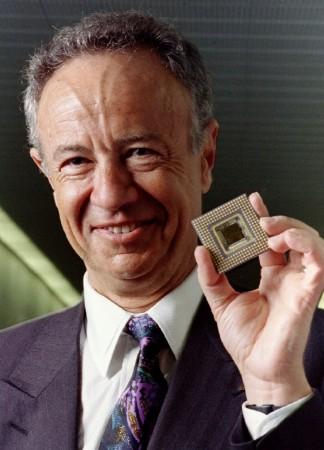
Prominent Silicon Valley personality and Intel's former chairman (& CEO) Andrew (Andy) Grove died March 21. He was 79.
"We are deeply saddened by the passing of former Intel Chairman and CEO Andy Grove," Intel CEO Brian Krzanich said in a statement.
"Andy made the impossible happen, time and again, and inspired generations of technologists, entrepreneurs, and business leaders." Krzanich added.
The cause of Andy Grove's death is yet to be officially announced, but he had been suffering from Parkinson's disease for a long time. He was also a prostate cancer survivor.
Andrew Grove's original name is András Gróf. He was born Sept. 2, 1936, in Budapest, Hungary. Grove survived both Nazi occupation and Soviet repression periods and he immigrated to the United States in 1956-67.
Grove majored chemical engineering at the City College of New York and completed his Ph.D at the University of California in Berkeley in 1963. After graduation, he got enrolled as a researcher at Fairchild Semiconductor company. He became an assistant head of R&D under Gordon Moore.
Later, Gordon Moore and Robert Noyce left Fairchild to set up their own semiconductor chip manufacturing company Intel in 1968. Andy Grove was their first hire.
Grove's people management skills and impeccable sense of predicting technological disruption in the chip business made Intel a behemoth in the semiconductor industry. Grove went on to become Intel president in 1979, CEO in 1987 and later chairman (1997-2005).
Intel Corporation is currently the world's biggest semiconductor maker and its chips are present in more than 80 percent of the computers across the world. Grove is considered to be one of the greatest leaders of the 20th century for his immense contribution to the fast development of personal computers and smart devices. He has also penned a couple of most revered business management books such as High Output Management (1983) and Only the Paranoid Survive (1999).
Silicon Valley legends Bill Gate, Tim Cook and others condoled Grove's untimely demise.

















